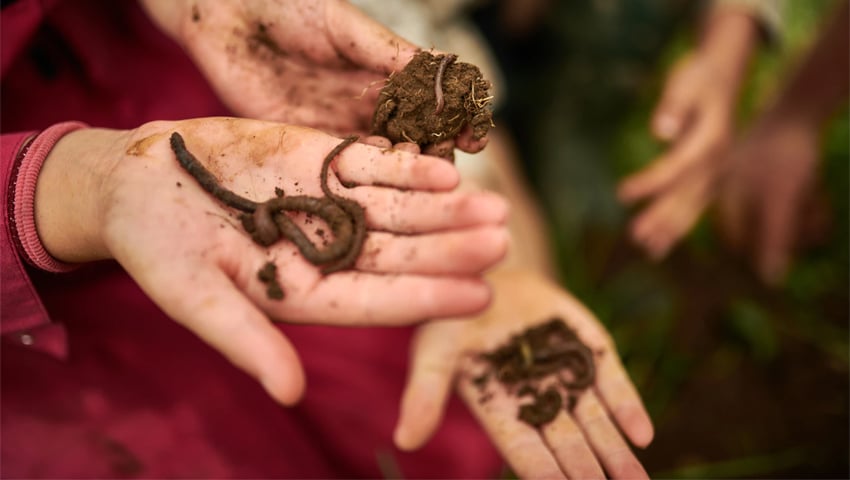In a new ground-breaking endeavour, 34 First Milk farms dotted across Derbyshire have been invited to take part in a first of a kind, Defra-funded project, that could transform the way we assess soil health. Spearheaded by the eco-acoustic team at Baker Consultants and Warwick University, this pilot will delve into the world beneath our feet, and measure biodiversity below ground using sound to gain vital insights into soil health.
Traditionally, assessing soil health has revolved around above-ground observations, digging holes with visual assessments and laboratory tests.
However, this ambitious project is potentially set to revolutionise this practice by adopting techniques similar to those used in capturing bat and bird calls. By translating these methods down to the subterranean realm, the project will discern and monitor the sounds emitted by earthworms and other soil fauna.
These acoustic cues hold the potential to unveil a treasure trove of information about below-ground biodiversity and overall soil health.
The findings of this project hold incredible promise not just for First Milk farmers but agriculture as a whole; by understanding the intricate interactions and dynamics occurring below ground, farmers and land managers can make detailed and informed decisions that positively impact productivity, environmental preservation, and which protect the delicate balance of our ecosystems.
A First Milk spokesperson said, “As we eagerly await the unveiling of the project’s findings, one thing is abundantly clear – the 34 First Milk farms are making history and paving the way for a new era in soil health assessment.
“This project not only showcases the innovation taking place within agriculture and shows how thinking outside the box will help us to shape a more sustainable and resilient future for our food system and planet.”
Watch a short interview about the project here
